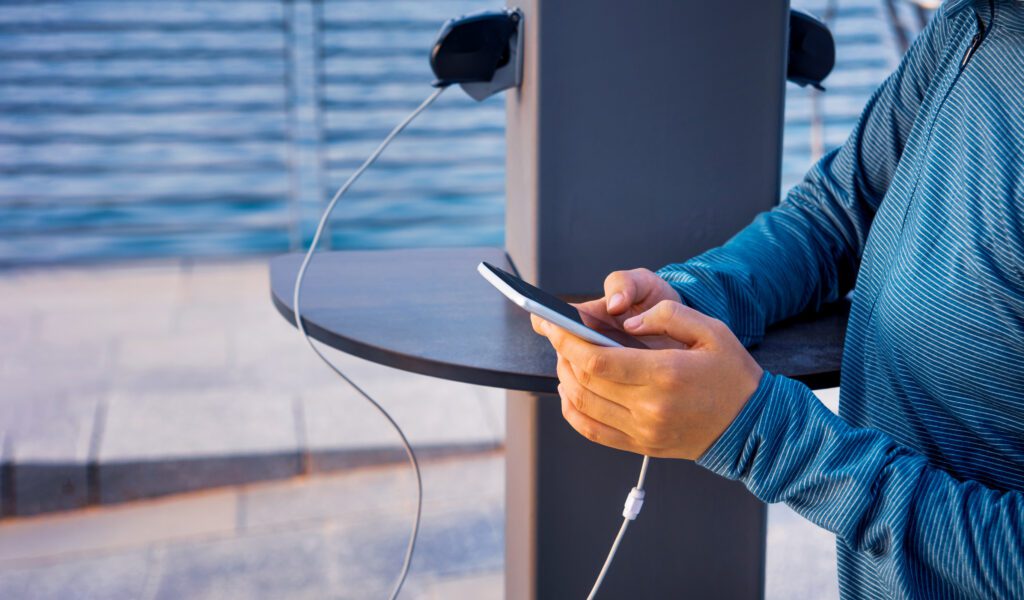Business travel is all about efficiency – tight schedules, seamless connectivity, and staying powered up wherever you go.
But in the rush to charge a phone or connect to public Wi-Fi, many travellers unknowingly expose themselves to cyber threats that could compromise personal and corporate data. Two of the most common hazards? Juice jacking and unprotected Wi-Fi connections.
Juice Jacking: The Hidden Threat in Charging Ports
Imagine this: You’re navigating a busy airport, your phone is running low, and you spot a convenient USB charging station. You plug in without thinking twice. What could go wrong? A lot. Juice jacking – or port jacking – is a cyberattack where hackers use compromised USB ports to install malware or steal data from your device. Airports, hotels, and conference centres are prime locations for these attacks because of the widespread use of public charging points.
How to Protect Yourself
- Use a wall charger – Plug directly into a power outlet rather than relying on USB ports.
- Carry a portable power bank – A personal charging solution means avoiding risky public stations.
- Consider a USB data blocker – These devices prevent data transfer, allowing only power to flow through the connection.
- Enable battery-saving mode – Extend device battery life to reduce the need for emergency charging.
Navigating Public Wi-Fi Securely
Alongside charging stations, unprotected Wi-Fi networks are another danger for business travellers. Free airport or hotel Wi-Fi can be compromised, allowing cybercriminals to intercept sensitive data.
Safer Wi-Fi Practices
Use a VPN – A virtual private network encrypts your data, making it harder for hackers to access sensitive information.
Avoid accessing sensitive accounts – Refrain from logging into banking apps or corporate accounts on public networks.
Opt for mobile data or tethering – Using your personal hotspot is safer than unknown Wi-Fi.
Verify legitimate networks – Ask staff to confirm Wi-Fi details before connecting. Fake access points disguised as official networks are a common trick used by hackers.
Final Thoughts
Business travellers can’t afford security mishaps. A compromised device can lead to financial losses, identity theft, and corporate data breaches. The best defence? Stay informed, take precautions, and travel smart. By prioritising secure charging and connection habits, travellers can ensure that their devices – and their data – remain protected, no matter where work takes them.


